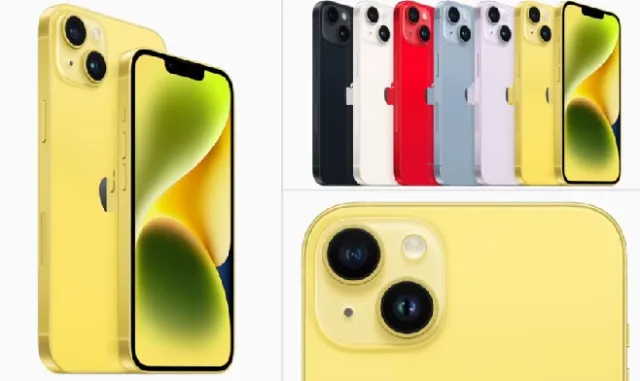Business and Brands
Latest iPhone, 15 pro-max, to retail starting at N1.1 million

In a much-anticipated event held at Cupertino, California, Apple Inc. (AAPL) took the wraps off its latest product offerings, including the iPhone 15 series and the new generation of Apple Watches.
The launch has generated a buzz among Nigerian tech enthusiasts, but the high costs, compounded by the country’s 24% inflation rate, raise questions about affordability.
Its higher-end iPhone 15 Pro-max will sell at a naira equivalent starting at N1.1 million assuming the current exchange rate of N930/$1.
iPhone 15 Series: The Next-Gen Smartphones
Apple showcased four variants of its newest iPhone model: the iPhone 15, iPhone 15 Plus, iPhone 15 Pro, and iPhone 15 Pro Max. Starting at $799 (approximately ₦742,270), the iPhone 15 serves as the entry-level model.
- This is followed by the iPhone 15 Plus, priced at $899 (approximately ₦835,470).
- On the higher end are the iPhone 15 Pro and iPhone 15 Pro Max, starting at $999 (approximately ₦928,670) and $1,199 (approximately ₦1,114,920) respectively.
- Pre-orders will open on September 15, with availability starting September 22.
- In a surprising move, Apple chose not to significantly alter the pricing, keeping it relatively constant across the new models, except for the iPhone Max which is a $100 increase over last year’s starting price.
This is noteworthy for Nigerian consumers, who face the dual challenges of a 24% inflation rate and an exchange rate of around ₦930/$1 in the black market.
Apple Watches
Apart from the iPhones, Apple also expanded its watch lineup, revealing the Apple Watch Series 9 and the more luxurious Apple Watch Ultra 2.
- The Series 9 will cost $399 (approximately ₦370,830), while the Ultra 2 will start at a whopping $799 (approximately ₦742,270).
- One of the standout features is “Double Tap,” a new gesture control that adds to the device’s already impressive utility.
- The watches also integrate enhanced Siri capabilities for health monitoring, letting users track metrics like sleep and weight.
Moreover, Apple has moved a step closer to sustainability, declaring the Apple Watch Series 9 as its first-ever entirely carbon-neutral product.
The Bigger Picture: iPhones as a Mirror to Economic Changes
As we marvel at Apple’s latest technological advancements, it’s essential to pause and consider the bigger picture, particularly the economic shifts visible through the lens of iPhone pricing.
- Ten years ago, an iPhone that cost $1,200 would have set a Nigerian consumer back by approximately ₦198,000, based on the then exchange rate of ₦165/$1.
- Fast forward to today, and a similarly priced iPhone would cost over ₦1,114,920 at the current black market rate of ₦930/$1.
- This staggering difference isn’t just about the iPhone becoming more expensive; it mirrors the significant depreciation of the Naira and the biting reality of inflation, now at 24%.
- For Nigerian consumers, the evolving costs of owning an iPhone serve as a stark reminder of the economic challenges the country faces. The fluctuating exchange rates and soaring inflation impact, not just luxury purchases but the purchasing power of the average Nigerian.
As the nation navigates these economic complexities, the iPhone once a symbol of innovation and luxury has also unwittingly become an indicator of economic stress.
Therefore, as Apple continues to innovate and dazzle the world with its products, the Nigerian audience may find that the cost of being part of this technological journey is becoming increasingly prohibitive.


 Sports13 hours ago
Sports13 hours agoOleksandr Usyk defeats Tyson Fury to tetain heavyweight title

 News14 hours ago
News14 hours agoNigerian Emergency Agency NEMA Puts All Offices On Alert Over Fatal Stampedes

 Politics14 hours ago
Politics14 hours agoWe Will Bury PDP, Ibori’s Daughter Blows Hot

 Sports13 hours ago
Sports13 hours agoCAF Made Me Believe I Won – Achraf Hakimi

 Top Stories14 hours ago
Top Stories14 hours agoEmefiele: EFCC secures final forfeiture of 1.925 hectares of landed property linked to former CBN Governor
- News1 hour ago
NIGERIAN BREWERIES PARTNERS OZA CARNIVAL








